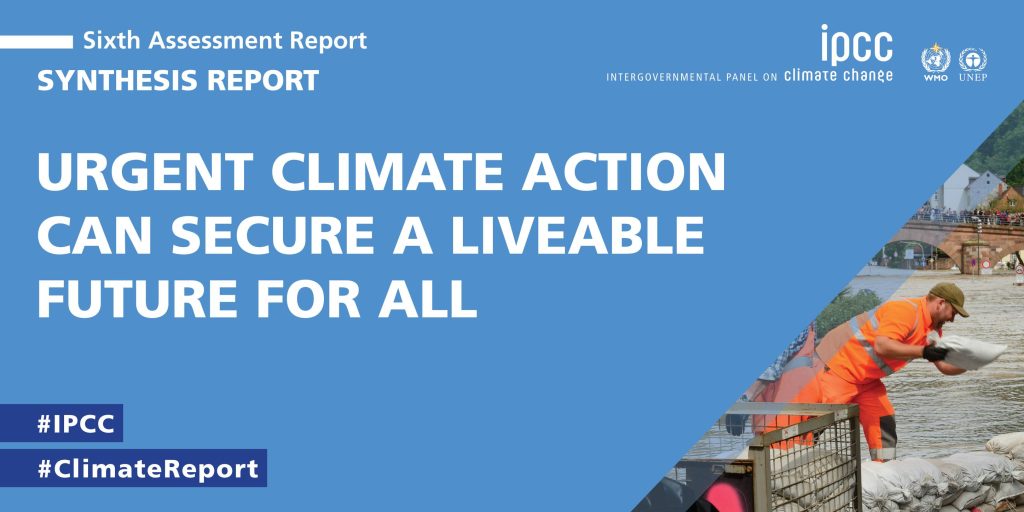
A propos du rapport de synthèse du GIEC – mars 2023
2023
Earth just had the hottest September on record – and by a record-breaking margin, according to leading international datasets which are used by the World Meteorological Organization (WMO) for its State of the Global Climate monitoring reports.
Bonn and Geneva, 6 September 2023 (ECMWF and WMO) - Earth just had its hottest three months on record, according to the European Union-funded Copernicus Climate Change Service (C3S) implemented by ECMWF. Global sea surface temperatures are at unprecedented highs for the third consecutive month and Antarctic sea ice extent remains at a record low for the time of year.
The UN Secretary-General’s Early Warnings for All Initiative (EW4All) is rapidly gaining ground. Action plans are being rolled out around the world to ensure that people know when dangerous weather is headed their way. Tajikistan has held a two-day national consultation, co-chaired by the Deputy Prime Minister and the UN Resident Coordinator in Tajikistan, and bringing together key stakeholders from state and international organizations, media and civil society. Ethiopia also held an inception workshop.
According to ERA5 data from the EU-funded Copernicus Climate Change Service (C3S), the first three weeks of July have been the warmest three-week period on record and the month is on track to be the hottest July and the hottest month on record. These temperatures have been related to heatwaves in large parts of North America, Asia and Europe, which along with wildfires in countries including Canada and Greece, have had major impacts on people’s health, the environment and economies.
It was the hottest June on record, unprecedented North Atlantic warmth, record low Antarctic sea ice
- World Meteorological Organization
The world just had the hottest June on record, with unprecedented sea surface temperatures and record low Antarctic sea ice extent, according to a new report.
WMO's annual State of the Climate in Europe report explores changes in climate indicators, extreme events and climate policy.



